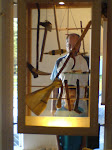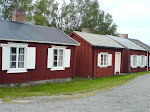“Compared to Christian religions we tend to see Eastern religions as more
positive towards us human beings. However, outward appearance can be deceptive. In Eastern traditions similar guilt messages can be heard. The Tibetan Buddhist religion, for example, tells us how important it is to concentrate on the
following points:At first these words can sound quite appealing. Who doesn’t long for a world with little or no individual greed and suffering, filled with pure and compassionate people? Taking a closer look at these focus points however, reveals an interesting similarity with the ideas Past Reality Integration has about defence structures /…/
- The individual doesn’t really exist. An identification with needs is therefore an illusion and induces attachment and suffering [False Power Denial of needs defence, having no needs nothing will hurt us]. We need to come to understand that everything is empty.
- Within the realization of emptiness (no ego, no attachment, no need) there has to a focus on compassion towards others. Anything that is done with an individual motivation is not done in ‘the right way’. No matter how much good you do, if you do it to attain enlightenment for yourself instead of doing it for humanity, it is not desirable [inducing guilt?? False Hope defence: “If I just…then…”].
- We need to purify ourselves. We can do this by engaging in rituals, meditations or through direct blessing from and devotion to a guru. [Primary defence; that purification is necessary implies that we are not clean in some way].
A closer look at many religions or spiritual teachings often reveals these defensive tendencies:
‘Our suffering is caused by our own impurity, our guilt and sinful nature. We
need to be strong and do our best.’ What happens to the child early in life and
the influences hereof on our feelings and behavior when we are adults is not
addressed. Emotional problems are often referred to as ‘sand in the wind’ –
release the sand and it will blow away. This demonstrates a Denial of the truth
of the emotional suffering that was caused during childhood because we didn’t
get what we needed. The old pain won’t ‘blow away’ until we face it, acknowledge
and feel it. The idea that it will is an illusion of a False Power – denial of
needs defence.
It is unfortunate that the blindness our society has in respect to our children’s suffering, and the devastating effects this suffering has on our lives as adults, is supported by these ideas inspired by religions, be it Eastern or Western /…/ … a step away from guilt-ridden religions and a step toward the message of spiritual masters throughout the ages. Spiritual masters NOT linked to dogmatic, rigid, hierarchical religions based on power structures. Power structures and ideas of sinfulness that provide them with power over their followers. But, the tendency to minimize the importance of the effects of our childhood remains, nevertheless.”
This means that the once that need help the most also are at greater risk of being manipulated including brain washed when they seek help too!! The ones that need less help are in a smaller risk!
If we get help to process things and become more and more aware of our own history and what I driving us, or manage on our own to do this work then we are at smaller risk for being manipulated and brain washed. Konrad Stettbacher has in fact written something that I think is right, namely to protect the watchers of life (their access to their own, genuine, original feelings) in children!! And do it from he first beginning. And with this helping them to protect themselves adequately and not behaving destructively or self-destructively, i.e. not harming either others or themselves…
“All walking with poles conditions increased walking speed, stride and stance time compared with the no pole condition. At the knee, impulse decreased a 7, 3 % between the no poles and selected poles condition 10, 4 % between no poles back conditions.
Test results show on average a 23% higher CO2, 22 % higher caloric expenditure, and 16 % higher heart rate responses compared to walking without poles on a treadmill.
Bosch skriver mer om skuld och religion på sedan 70-71:
”Jämfört med kristna religioner har vi en tendens att betrakta österländska religioner som positivare mot mänskliga varelser. Men yttre sen kan bedra. I österländska traditioner kan liknande skuldbudskap höras. Den tibetanska buddismen till exempel, talar om för oss hur viktigt det är att koncentrera sig på följande punkter:I förstone kan dessa ord låta ganska tilltalande. Vilka längtar inte efter en värld med litet eller ingen individuell girighet eller lidande, fylld av rena och medkännande människor? Om vi tittar närmare på dessa punkter för fokus avslöjas dock en intressant likhet PRI-terapi har om försvarsstrukturer /…/
- Individen existerar inte riktigt. Identifikation med behov är därför en illusion och medför vidfästning [vid andra och företeelser] och lidande [falsk-makt-förnekande-av-behov-försvaret, om vi inte har några behov så kan ingenting skada oss]. Vi behöver komma till förståelsen/insikten att allt är tomt.
- I insikten om tomhet (inget ego/själv, ingen vidfästning, inga behov) måste det finnas en fokus på medkänsla med andra. Allt som görs med en individuell motivation görs inte på ’rätta sättet’. Det spelar ingen roll hur mycket gott du gör, om du gör det för att nå upplysning åt dig själv istället för att göra det för mänskligheten, det är inte önskvärt [medförande skuld?? Falskt-hopp-försvar: ”Om jag bara … då…”].
- Vi måste rena oss. Vi kan göra detta genom att engagera oss i ritualer, meditationer eller genom direkta välsignelser från och hängivelse till en guru. [Ursprungligt försvar; att rening är nödvändig låter förstå att vi inte är rena på något sätt].
En närmare titt på många religioner eller religiösa läror avslöjar ofta dessa försvarstendenser: ’Vårt lidande är orsakat av vår egen orenhet, vår skuld och syndfulla natur. Vi behöver vara starka och göra vårt bästa.’ Det som händer
barnet tidigt i livet och inflytandet av detta på våra känslor och beteenden när
vi är vuxna adresseras inte. Känslomässiga problem refereras ofta som ’sand i
vinden’ – frige den och den kommer att blåsa bort. Detta demonstrerar ett
förnekande av sanningen om de känslomässiga lidandena som orsakades under
barndomen därför att vi inte fick det vi behövde. Den gamla smärtan kommer inte
att ’blåsa bort’ förrän vi möter denna, erkänner och känner den. Idén att den
kommer att göra det är en illusion från falsk-makt-förnekande-av-behov-försvaret.
Det är beklagligt att blindheten vårt samhälle har vad gäller våra barns lidande och de ödeläggande effekterna detta lidande har på våra liv som vuxna, stöds av dessa dess idéer som är inspirerade av religioner, vare sig de är österländska eller västerländska /…/ … ett steg iväg från religioner ridna av skuld och ett steg mot budskapet hos andliga mästare genom alla tider. Andliga mästare som inte är kopplade till dogmatiska, rigida, hierarkiska religioner baserade på maktstrukturer. Maktstrukturer och idéer om syndfullhet som förser dem med makt över sina efterföljare. Men, tendensen att minimera/bagatellisera betydelsen av effekterna från vår barndom blir dock kvar.”





























Inga kommentarer:
Skicka en kommentar